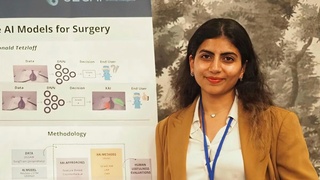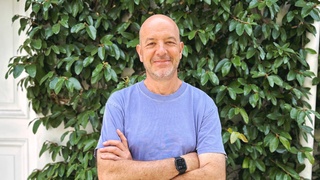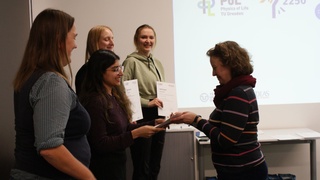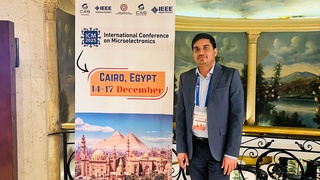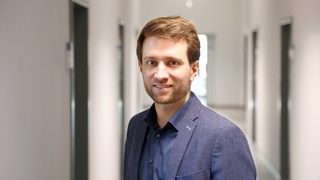 © Pavel Danilyuk
© Pavel Danilyuk
July 23, 2024
First doctorate for Carolin Schimmelpfennig at the SECAI Graduate School
Carolin Schimmelpfennig is the first doctoral student at the SECAI Graduate School to successfully complete her doctorate. In her doctoral thesis, she investigated gene fusions in prostate cancer (PCa), characterised potential new candidates and researched their role as prognostic markers for PCa progression. Kristin Reiche and Markus Kreuz supervised her work at the Fraunhofer Institute for Cell Therapy and Immunology (IZI).
The Bioinformatics working group in the Diagnostics department at Fraunhofer IZI focuses on the development of early diagnoses and improved risk stratification for personalised medicine. The aim is to enable individually customised therapy choices for patients. To this end, computer-aided methods are combined with omic-wide and multi-modal analytical procedures to identify and validate new biomarkers and apply new therapeutic targets.
For her research, Carolin analysed data sets from 630 patients from four cohorts that contained transcriptome-wide expressions (RNA-seq) and matched clinical follow-up data. She used the fusion calling software Arriba to detect the gene fusions. In addition to annotating the detected gene fusions against known databases, she performed survival time analyses.
“We identified two potential new types of gene fusions in all four cohorts, MBT TPS2, L0XNC01::SMS and AMACR::AMACR. We also found that the number of gene fusions detected in a patient sample was significantly associated with time to biochemical relapse (equivalent to disease recurrence) in two of the four cohorts (log-rank test, P-value < 0.05 for both cohorts). This was also confirmed after adjusting the prognostic model for Gleason grading groups (Cox regression, p-values < 0.05),” reports Carolin. However, as the quantitative correlations were only moderately strong, further validation and assessment of the clinical value is required before potential clinical application.
In addition to the financial support, “SECAI has helped me above all in networking with other scientists. I was able to get to know many exciting people and projects. I am very happy that I had the opportunity to finish my doctoral thesis with SECAI,” Carolin emphasises. For her future, she plans to remain in oncological research and is applying for a postdoctoral position.
